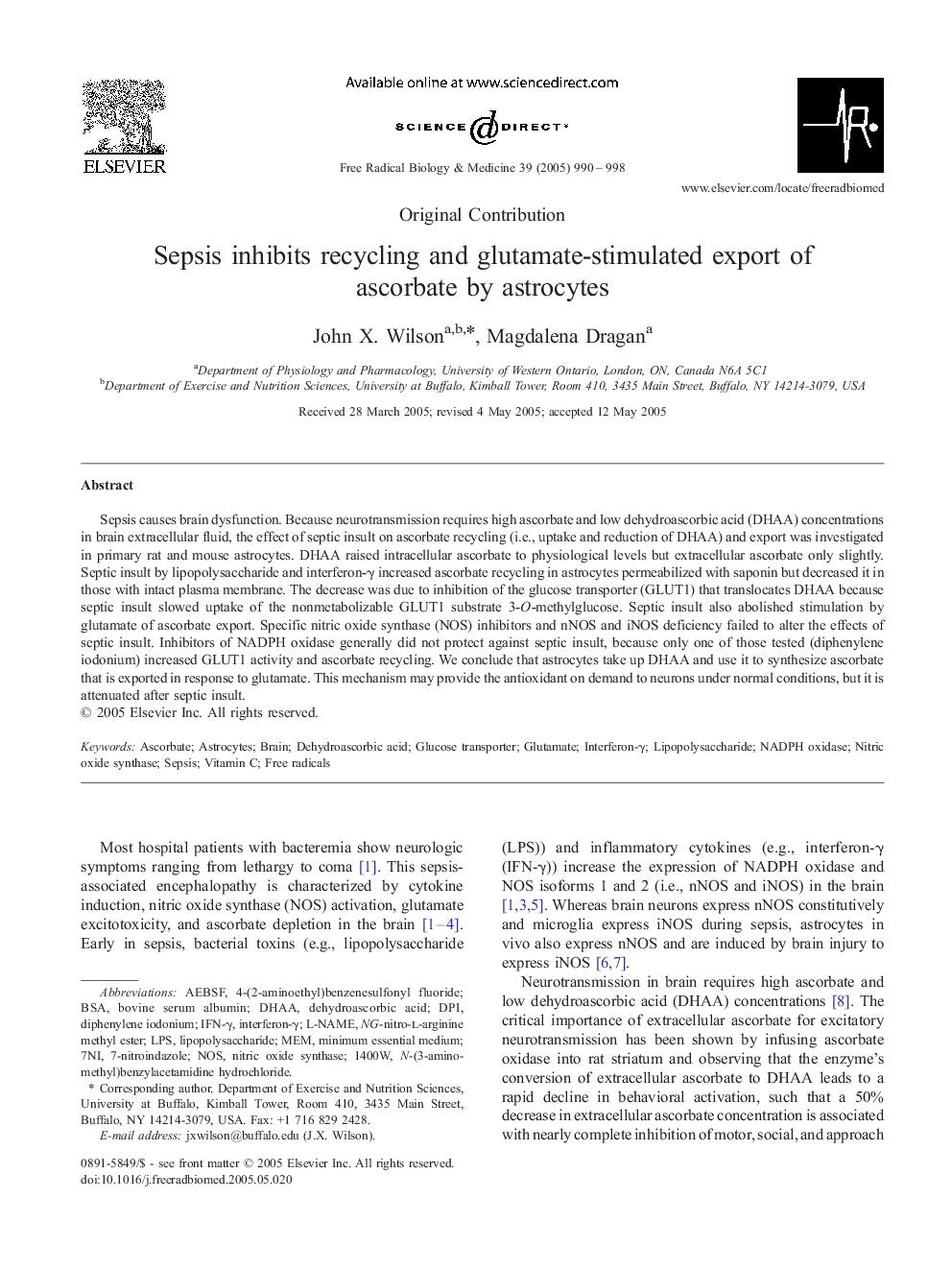| Article ID | Journal | Published Year | Pages | File Type |
|---|---|---|---|---|
| 10738954 | Free Radical Biology and Medicine | 2005 | 9 Pages |
Abstract
Sepsis causes brain dysfunction. Because neurotransmission requires high ascorbate and low dehydroascorbic acid (DHAA) concentrations in brain extracellular fluid, the effect of septic insult on ascorbate recycling (i.e., uptake and reduction of DHAA) and export was investigated in primary rat and mouse astrocytes. DHAA raised intracellular ascorbate to physiological levels but extracellular ascorbate only slightly. Septic insult by lipopolysaccharide and interferon-γ increased ascorbate recycling in astrocytes permeabilized with saponin but decreased it in those with intact plasma membrane. The decrease was due to inhibition of the glucose transporter (GLUT1) that translocates DHAA because septic insult slowed uptake of the nonmetabolizable GLUT1 substrate 3-O-methylglucose. Septic insult also abolished stimulation by glutamate of ascorbate export. Specific nitric oxide synthase (NOS) inhibitors and nNOS and iNOS deficiency failed to alter the effects of septic insult. Inhibitors of NADPH oxidase generally did not protect against septic insult, because only one of those tested (diphenylene iodonium) increased GLUT1 activity and ascorbate recycling. We conclude that astrocytes take up DHAA and use it to synthesize ascorbate that is exported in response to glutamate. This mechanism may provide the antioxidant on demand to neurons under normal conditions, but it is attenuated after septic insult.
Keywords
DHAA4-(2-aminoethyl)benzenesulfonyl fluorideNG-nitro-l-arginine methyl esterAEBSFIFN-γDPINOSLPS1400W7-nitroindazoleBSAl-NAMEAstrocytesAscorbatebovine serum albuminDehydroascorbic acidNADPH oxidaseinterferon-γminimum essential mediumGlucose transporterdiphenylene iodoniumFree radicalsSepsislipopolysaccharideMEMBrainnitric oxide synthasevitamin Cglutamate
Related Topics
Life Sciences
Biochemistry, Genetics and Molecular Biology
Ageing
Authors
John X. Wilson, Magdalena Dragan,
